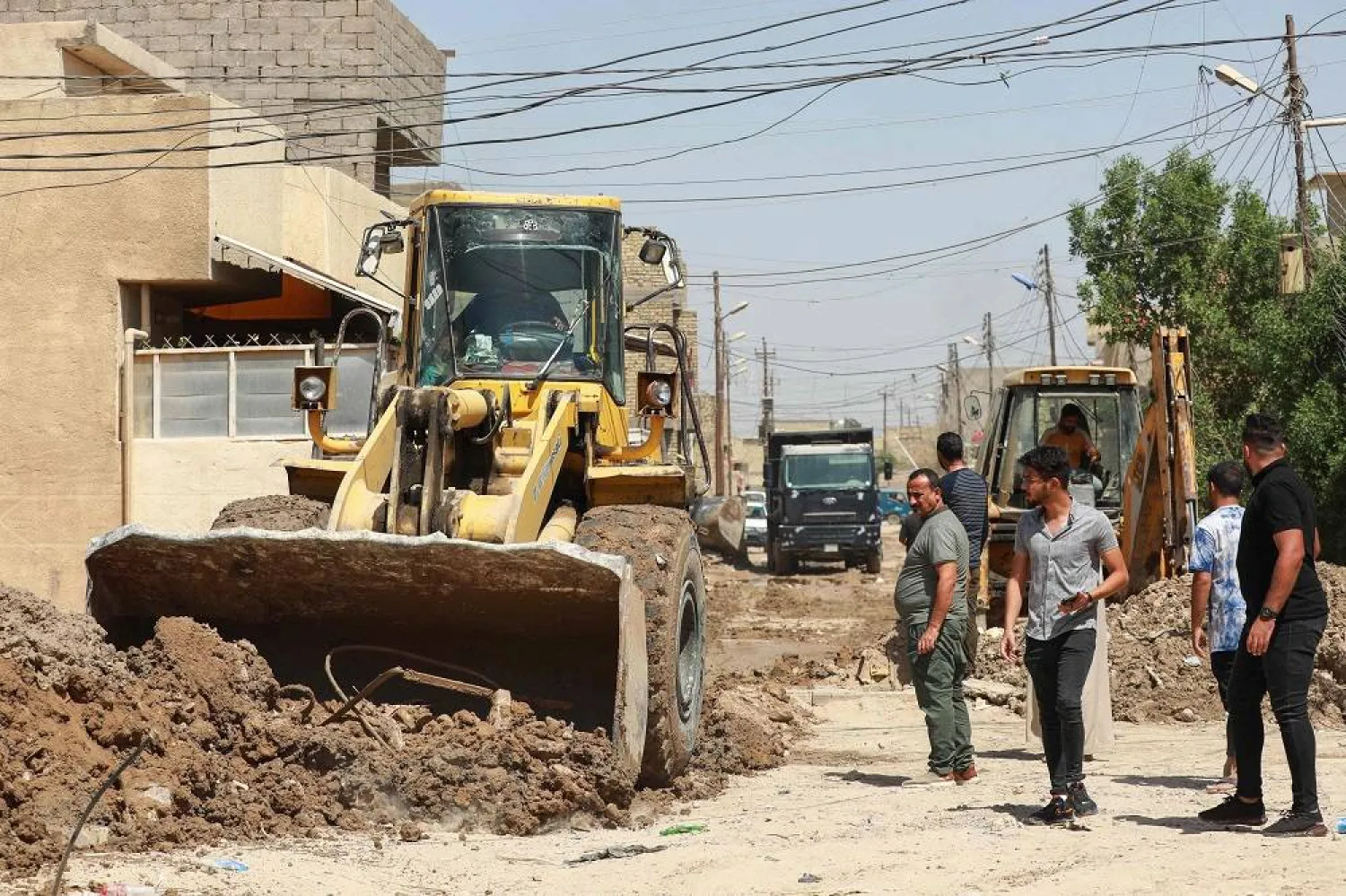On a summer evening, Iraqis smoke shisha and go bowling at a sprawling riverside complex in Baghdad, one of the many new investments reviving the capital after decades of turmoil.
"Iraq is fertile ground for investments," said Falah Hassan, the executive director of the complex of restaurants and shops built on the grounds of one of Saddam Hussein's former palaces and named after the famed "One Thousand and One Nights" folktales.
In oil-rich Iraq, the fragile stability since the defeat of the ISIS group in 2017 has paved the way for a building boom in a city that in recent years has mainly made headlines for wars and bloody violence.
Since taking office in October, Iraq's Prime Minister Mohamed Shia al-Sudani has sought to rehabilitate Baghdad's infrastructure, much of which has been left dilapidated by conflict and neglect.
But a World Bank report in July said investors were still hesitant to put their money in Iraq, citing a "lack of business-friendly legislation, a volatile security environment, administrative inefficiencies, and systemic corruption".
Hassan acknowledged investors still faced numerous obstacles, including "the security situation" and "bureaucracy".
"You have to go through 1,000 counters to get a single permit," he said, noting the new "1,001 Nights Park" complex perched on Baghdad's Tigris river was opened in late 2022 by "young investors".
'Epidemic of corruption'
This is a reality authorities say they are committed to changing to attract investors.
In late August, Sudani attended the groundbreaking ceremony for a luxury hotel and residential complex, the first major Qatari investment in Baghdad.
"From the prime minister to the lowest-ranking official, we will stand alongside investors and the private sector to carry out projects in Baghdad and the provinces," the Iraqi leader said.
At the United Nations General Assembly last week, Sudani said "our top priority is the fight against the epidemic of corruption".
But experts say dirty money is behind many of the new developments seen in Baghdad.
"In recent years, Iraq's political elite and their business associates have preferred to invest their wealth in local projects as a safe haven for ill-gotten gains," wrote Hayder al-Shakeri in a piece for the Institute of Regional and International Studies at American University of Iraq, Sulaimani.
"In part to disguise the origins of their illegally obtained funds, the political elite have allegedly taken to investing in upscale residential compounds, malls, private universities, and other real estate ventures, resulting in a 'visible boom' in Baghdad's development," he added.
In less than a year, Sudani has undertaken work to provide improved water and electricity services to Baghdad's informal neighborhoods, construct bridges and redesign the streets of one of the Arab world's most populous cities.
In the 2023-2025 budget passed this year, annual investment expenses are set to hit $37 billion -- three times the amount in 2022, the World Bank reported.
These generous allocations are made possible by Iraq's tremendous oil wealth and foreign reserves, which amount to more than $100 billion.
'No water, no electricity'
In the neighborhood of Kufa on Baghdad's outskirts, a bulldozer digs up the road to install pipes, while a dump truck removes the rubble.
A special unit is working to rehabilitate the many informal neighborhoods of Baghdad "deprived of services for more than 20 years", said Abdel Razzak Abd Mhessein, the project's head engineer.
The unit is made up of people from various ministries, state-owned enterprises as well as engineers from the army and paramilitary network, the Popular Mobilization Forces.
"We have a budget of about 200 billion dinars ($150 million) for infrastructure work for water, sewer systems and more," the engineer told AFP.
"There are more than 1,093 informal neighborhoods in Baghdad -- a plan has been prepared to gradually carry out work there," he added.
The public's reaction to the work so far has been mixed.
"This is what we dreamed of. Paved roads, and services," said Abu Ali al-Bahadli, a 55-year-old day laborer.
"Before, we couldn't go out when it rained. The road was muddy and the sewers overflowed."
His neighbor, Ahmed Radi, is more skeptical, noting work on his street had not brought him adequate electricity or running water.
"Tell me, which official would accept staying even an hour without water," said the 45-year-old civil servant.
"When will they install pavements? Storm water drains?" he asked.
"We come home tired from work. There's no water, no electricity. For how much longer?"









